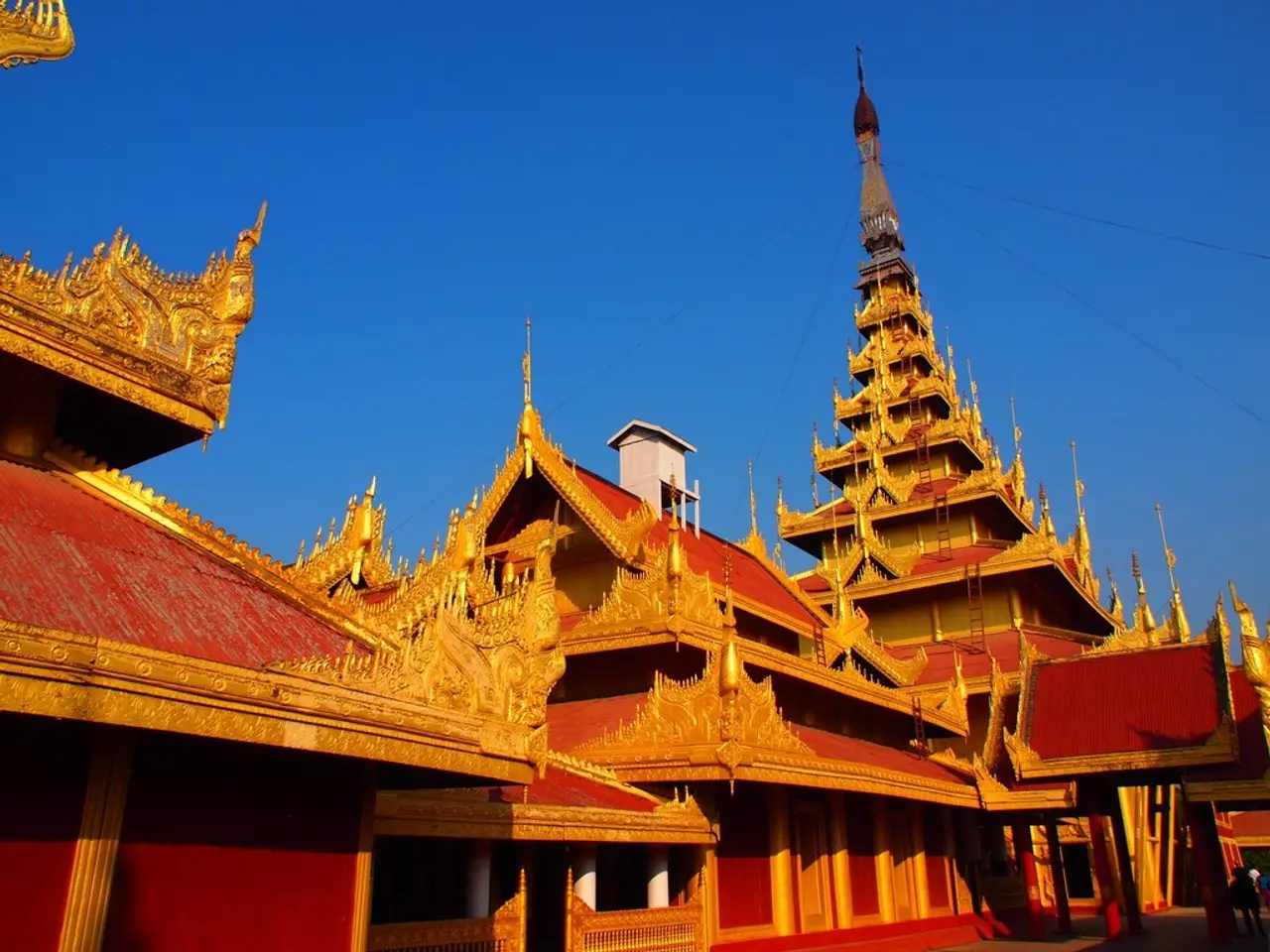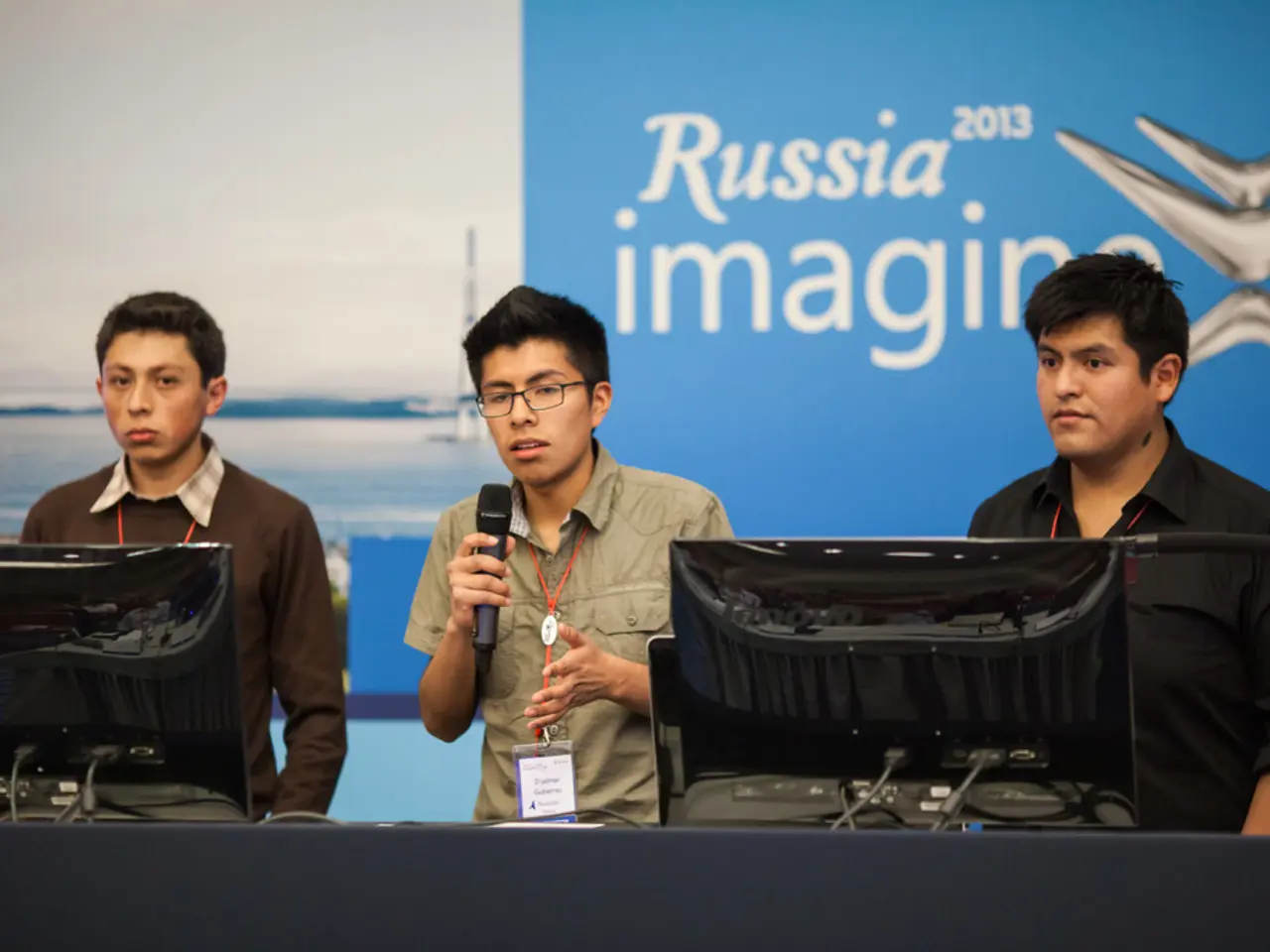Political Unrest in Bangladesh: Secular Voices Face Intensified Suppression as Economy Deteriorates (Regarding Jayanta Roy Chowdhury)
In the first half of 2025, Bangladesh has been grappling with significant political, social, and economic challenges. The country is currently experiencing a period of considerable turmoil following the fall of the Awami League (AL) government, which was ousted in a major political upheaval.
The political landscape has become increasingly polarized, with the interim government, led by Muhammad Yunus, being labelled as "fascist" by supporters of the former AL government. The 2025 Awami League ban protests, under the banner of "National Anti-Fascist Unity," began on May 8, 2025, and the party's activities remain banned until trials of its members are concluded[1].
Recent developments have seen a deepening of Bangladesh's ties with China and Pakistan, which has led to increased tensions with India. This shift in foreign policy has had significant economic implications, including visa restrictions and reduced trade[2].
The former Prime Minister Sheikh Hasina, who has been living in exile in India since August 2024, is facing charges of crimes against humanity related to a 2024 crackdown on student protests[2]. Bangladesh has requested her extradition, but India has not responded officially.
Violence and crime remain prevalent in Bangladesh, with a notable increase in rape cases in the first half of 2025[3]. Reports of bomb blasts in the Bangladesh capital have also been reported. The number of incidents of recorded violence targeting minorities has risen to 258 in the first half of 2025, as revealed by the Hindu-Buddhist-Christian Unity Council[1].
Economically, Bangladesh is facing a challenging period. Unemployment has risen, and inflation has spiraled to double digits. Global banks have slashed GDP growth forecasts for Bangladesh for 2024-25 to a sobering three percent plus[1]. The ripple effect of the factory shutdowns is affecting packaging and logistics chains, support industries, and the finance sector. Since 2024, a wave of factory shutdowns has hit Bangladesh's garment sector, closing 113 factories and eliminating 96,000 jobs[1].
One of the most prominent figures affected by the political upheaval is Prof. Abul Barkat, a respected economist and a leading Bangladeshi voice on de-radicalisation and minority rights. Prof. Barkat was arrested under charges of alleged links to Indian intelligence agencies[1]. However, recent news articles and official statements regarding the details of his arrest are not readily available.
The trend of arrests and chaotic rule in Bangladesh is reminiscent of the actions of Pakistan's military junta in 1971, which targeted intellectuals, activists, and minorities[1]. The ongoing political turmoil, violence, and economic challenges in Bangladesh are causing concern both domestically and internationally.
[1] Source: The Daily Star [2] Source: The Financial Express [3] Source: The Dhaka Tribune
- Amidst the heightened political landscape, discussions in the realm of general-news programs have increasingly focused on the controversies surrounding the interim government, with accusations of "fascism" and allegations of human rights violations targeting opponents.
- In addition to the Political landscape, crime-and-justice matters have become a significant area of worry in Bangladesh, with a surge in violence, including rape cases and bomb blasts, as well as rising incidents of recorded violence against minorities.








